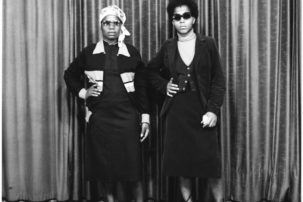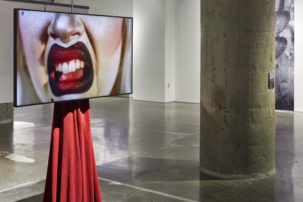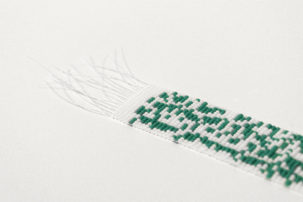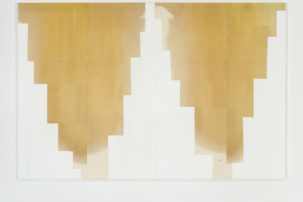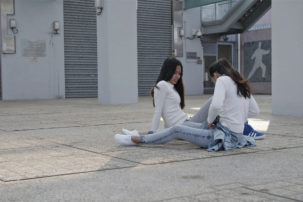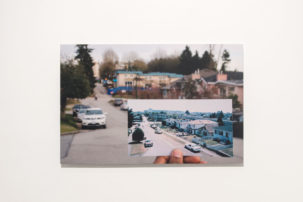Interviews
Expanding Access: An Interview with Michelle Jacques
As Jacques embarks on a new position as Remai Modern’s New Head of Exhibitions and Collections/Chief Curator, she looks back at her achievements at the Art Gallery of Greater Victoria
Expanding Access: An Interview with Michelle Jacques
As Jacques embarks on a new position as Remai Modern’s New Head of Exhibitions and Collections/Chief Curator, she looks back at her achievements at the Art Gallery of Greater Victoria
Phantoms of Post-Coloniality
“The gazes in my paintings are not accidental.” Senegalese artist Omar Ba speaks with Montreal-based scholar James Oscar about hauntings and ghosts, frequencies and repetition, and the politics of painting now
“The Way She Looks: A History of Female Gazes in African Portraiture”
Sandrine Colard, artistic director of the upcoming Lubumbashi Biennale and guest curator of a new exhibition of African photography at the Ryerson Image Centre, discusses the shifting dynamics between female sitters and their photographers
Drag Is a Mirror
Victoria Sin’s hybrid practice uses speculative fiction to disrupt normative ways of desiring, looking and existing
The Quiet Resistance
For artist Carrie Allison, beadwork is a methodology to decolonize, the pull of threads a memory device to connect through generations
The Legacy of Presence
Artist Sandra Brewster talks about her process and the influence of memory
“A Stubborn Way to Encourage Real Looking”
Artist Shaan Syed discusses his work in painting, gallery-making, language and more
Women and Water Illuminate the World
The ReMatriate Collective’s exhibition at the Bill Reid Gallery represents Northwest art differently, highlighting women carvers, feminine water ceremonies and even a lesbian creation story
Like a Vessel
Drones, moms and menopause: video artist Stephanie Comilang and performer and musician Peaches talk about all the ways that art helps represent—and resist—gender
To Salvage an Archive
What does it mean to make public your family's history of migration? Deanna Bowen discusses her new exhibition ”A Harlem Nocturne,“ and Black histories across the continent
Medicine for a Nightmare (they called, we responded)
Nep Sidhu’s controversial exhibition is touring to galleries across the country. Here, he talks about critics, Indigeneity and how religion and community influence his practice

